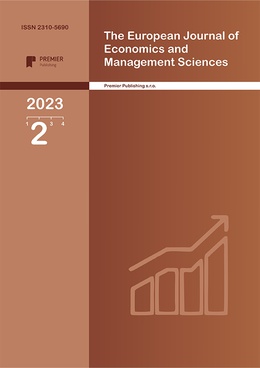INTERNAL AUDIT AND INSPECTION IN LOCAL SELF-GOVERNANCE
Authors
Giorgi Zhvania

Share
Annotation
The objective of a previous article is to explore the differences between the functions of an internal audit and inspection in local self-governance. Somehow, there is confusion, about the objectives of internal audit and inspection. Occasionally, the terms “Internal Audit” and “Inspection” are used interchangeably, even though they are very different from each other. In this article, I am trying to explain the objectives of an internal audit and inspection, as well as to find out the difference between them.
This article is dedicated to explaining the goals of internal audit and inspection and seeing the difference between them.
While the research process, the materials of the Institute of Internal Auditors (IIA) were used. Moreover, the laws and normative acts adopted by Georgian legislative and executive bodies, the International Professional Practices Framework (IPPF), as well as guidelines and standards of the International Organization of Supreme Audit Institutions (INTOSAI) for the public sector, and the methodologies, reports, and publications developed by the Central Harmonization Unit (CHU).
Keywords
Authors
Giorgi Zhvania

Share
References:
- The Ministry of Finance of Georgia; Public Internal Financial Control Strategy 2017- 2019;
- The Ministry of Finance of Georgia; 2021 Annual Report on Internal Financial Control;
- Law of Georgia №2839-Iს 26.03.2010 on “Internal Financial Control.“
- “Accountings in Georgian Public Sector” – L. Grigalashvili, the manual issued by publishing house “Technical University”, Tbilisi, 2017. – pg. 263;
- “Financial Reporting Audit” - N. Pailodze, R. Qutateladze, L. Chumburidze; Z. Tolordava; publishing house “Technical University”, pg. 222-325; https://doi.org/10.36073/978-9941-28-873-9;
- “Accounting”, Volume 3 (Computer information systems) – G. Sulashvili, M. Pailodze, N. Alania, J. Kekenadze, V. Khutsishvili, O. Sakhokia; publication of TSU, 2017, pg. – 270;
- “New Paradigm of Transnational Corporation Management and Fulfilment of Accounting Control System in Georgia”; G. Sulashvili, A. Abralava, I. Urbanize, N. Pailodze, 2022;
- “Business Analysis, Evaluation, and Development” – Z. Lipartia, Sokhumi State University, publishing house “Meridiani”, Tbilisi 2020, pg.620;
- Internal Audit in Public Administration of Georgia” – Irma Gelantia Akhvlediani, auto abstract, Sokhumi State University, 2021;
- Chartered Institute of Internal Auditors. (2015). International Professional;
- Chartered Institute of Internal Auditors. (2017). WHAT IS AN INTERNAL AUDIT? https://www.theiia.org/en/about-us/about-internal-audit/ (Last Checked on 03.12.2022);
- Council of Europe. (2002). Internal Audit at local and Regional Levels;
- Delloite. (2018). Internal Audit 3.0- The Future of Internal Audit is now;
- Eko Suyono, E. H. (2012). Relationship between Internal Control, Internal Audit, and Organization Commitment with Good Governance. 2-4;
- ELoGE. (2006). 12 Principles of Good Democratic Governance. European Label of Governance Excellence;
- Ian Goodwin, R. L. (2017). Local government performance expectations of the future. Australia.


